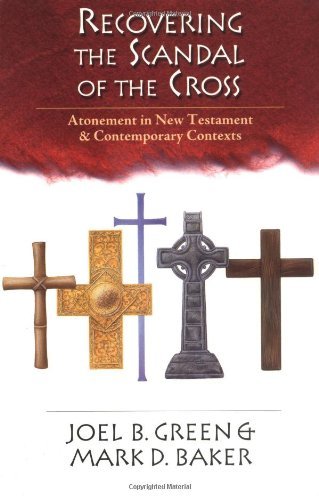
Some books you read and discover something new. Other books, you read them and think, “I knew it!” For me, Recovering the Scandal of the Cross, which I read while writing my dissertation, was the second.
First, a bit more background. My dissertation explored how we talk about the divine and the impact of that talk on the lives of people. In essence, I set out to use the New Testament Gospel accounts to answer the question, what is God like? My conclusion? The God Jesus called Father was nothing like the vengeful and retributive god I grew up learning about. So that sparked the question, what do I do with Jesus’ crucifixion?
Recovering the Scandal of the Cross offers an array of faithful options for interpreting the meaning of the cross.
Green and Baker also explore the historical development of substitutionary atonement. This model dominates the American Christian landscape. Those who embrace it often offer it as the only legitimate theory of atonement. In contrast, Baker and Green identify the roots of substitutionary atonement in medieval feudal society. In other words, it must be read into the New Testament rather than from it.
If you want to understand the formation of Western Christianity, this book is for you. If you are looking for new ways to interpret the Bible, this book is also for you.